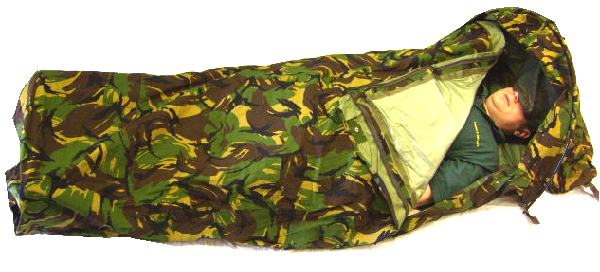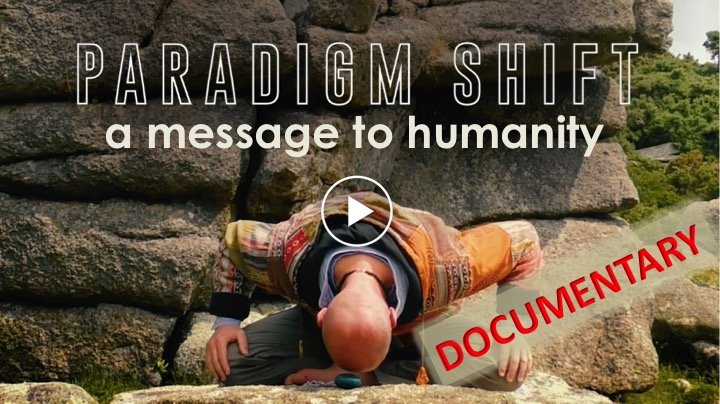Survival tips...and living at-one with nature
Well, the things are not 'that bad' yet and might not get that bad ever, but it feels like getting my survival 'cookbook' ready, just in case, and I share here whatever info one might need when it comes to survival.
Ususally, unlike all the important can't do without long list of stuff average person might feel he needs, when it comes to survival, there are only 4 things needed and sought after during tough times, in order of decreasing importance: drinkable water, food, staying warm when it is cold outside and 'disinfection'.
Well why water and food are necessary I think it is obvious...
Staying warm - immune system, especially if it is already weakened by 'stress', poor diet :) and all that
Disinfection - while it is not so vital when it comes to rather 'clean' environment, when things get tough ususally it is accompanied by all kinds of diseases spreading (like we had cholera strike in Ukrain in 90's) and having some cleansing products and taking certain precautions can be vital during such times.
By the way all these can be used and done without necessarily having to do with survival :) There are things that can be done today, just as a more Earth-friendly way of living...
Ok...
- Add new comment
- 2737 views
Comments
A short one :)
Comment
Cutting or shaving hair (for those with long hair) can make things easier. Especially that hair-loss is very common during challenging times. Another thing that can happen - lice 'and stuff' :S
I just lost a whole lock of hair, it made me contemplate how it would feel to be bald. Not that easy ;) I found I am actually attached to how I look :D
So... I'm getting prepared with this one! Look BAD!!! :D
Bald, dirty, with rags and all that. Can be fun if go past conditioning ;)
Wow made of bricks!
Comment
Genius in its simplicity!
It would be so fun to build it and cook in it everybody together, ha? :)
I say - potatoes!!! :D
cool stove
Comment
Thats Awesome, beats a bbq any day.
I'm on the case with that one.
:)
Dr. Bronner...
Comment
... is cool. They have both liquid and solid soaps.
Btw liquid castile soap can be mixed with oil (olive/almond/coconut/castor) and water or herbal tea in proportions of 1:2:1/4 - castile liquid soap:water/tea:oil. You can also play with the proportions to find your own recipe that works for you.
And instead of hair conditioner - 1 table spoons of apple cider vinegar in a cup (~220 ml) cold water, just pour it on your head and don't wash away.
Also water plays a big role. Hard water demands more soap/shampoo to work and creates a film with non-SLS soaps (clogging the pipes, the pores, drying the skin and hair). Here in Israel the water is very hard, so it is a big challenge to find something that works ok.
My grandma in Ukraine was colecting rainwater and washing her hair with it. Another good reason to collect the rainwater. Some people boil and then cool the water, it makes it softer.
But for me it is enough just to boil and cool that cup for the final hair rinse.
In general, hair is probably one of the most problematic areas to deal with when survivng: washing long hair is a problem, then hair-loss due to stress, malnutrition or inability to wash the sculp, and there is a well-known problem - lice. So cutting the hair as short as possible or shaving a head can be a great way to minimize these problems in extreme conditions. Then of course, it will be colder, as the body looses heat through the top of teh head - so wear a hat or wrap your head with some cloth.-
-----------------
Now, another big advantage of Bronner's soap is that it is ok if there are traces of it left on the skin.
So what can be done with this kind of soaps is a "4 cups of water wash" :D It can be useful to know this option in case there will be a water problem. I've tested it and it works just fine:
Place 4 cups of water (or some ammount that works for you) with some soap in it (the water should be really slightly soapy) in a pot or bowl.
And then - just wet a soft cloth or a sponge in the water, squeeze just a tiny bit and wash some area, start from the upper part of the body. Wash the cloth in the soapy water and go again, from up down. Most dirty areas, like feet are the last to wash. now if you stand in a tub or something that can trap the water flowing down from the body,then you will stand in a puddle which already 'washes' the feet, you can wash your feet then in it better than with just a cloth.
If these 4 cups include a face wash, then you can add the soap after washing your face, first wash your face bending over the pot and then the rest of the body.
The same will work with the 'plants' water and 'herbal teas' water if there's no soap.
-------------------------------
Now I wanted to make an important note: because I could confuse somebody when I said ~"the above-mentioned plants are good for brushing teeth". I meant the desinfecting and cleaning plants and substances, not the soapy plants :S
Survival tips for every day life
Comment
Yey!
Why wait until we don't have a choice? It is so funny that most of these tips here are actually about how we can live more naturally, more connected to nature, less dependent on the matrix and stop feeding it where we can.
We can feel out and start right now?
Even the bivvy bag and the sleeping bag :D Once people have it, maybe they will feel like sleeping less at home, in the box, and go out and taste the freedom and the uplift of sleeping outside, under the trees, on the shores (well now in the summer we can do without these too), even in the park on the grass. What a joy!
About deodorants. While I don't care other people smelly, I admit I have something with it. It is sitting on my child stuff, my mom and sister were picking up on me and telling me I am all stinky :D And ~4 years ago I moved to natural deodorants, which don't block the perspiration. And then at the shop I was working at back then I was told that there is something called deodorant, etc etc... Okaaay
I don't want to push myself, and this is important for me that while challenging myself I don't impose the changes, force them and let them happen naturally. So I do use natural, essential oils based organic deodorant.
And here some important info for those who still find it too challenging to stop using deodorants:
Antiperspirants are highly not recommended, because
1) They interfere with the natural cooling mechanisms, and many people begin to develop hyper-sweaty face, hands or feet, and this is because the body is looking how to compensate the inability to balance itself through the armpits;
2) Sweating is one of the detoxifying mechanisms of the body. This is why we can 'smell our diet' on ourselves. So where do these toxins go when the drainage is blocked? Well, part of them are going back to the blood system and recirculate again, and part of it gets diffused around the armpit-breast area actually. There were several studies about how antiperspirant deodorants lead to constant inflammatory process around the armpits and tumors in the armpits and breast area (especially with women).
3)They interfere with one of the ways to communicate - through smell.
So here are tips of you anyway want to use something:
it can be as simple as using some almond or coconut oil with a few drops of lavender, rosemary or jasmine essential oils (or you can prepare a mixture in advance). I also use essential drops directly on the clothes (in the armpits area).
Btw, it is also good as an insects repellent :)
This kind of deodorant won't interfere with perspiration and natural smell of the body, it will only add some flowery touch to it. So the 3 bullets become irrelevant.
:)
Mops, pads and diapers
Comment
I bet you didn't think of these ;)
It can be great to look at what you are throwing away (torn or ruined clothes, linens, towels, tablecloth, blankets, etc). You can use them for
1. Mops.
When there are not going to be rigging for cleaning around, you will want to have some of those 'rags' you wanted to throw away at hand.
Back then in Ukraine we washed everything with old clothes, towels, etc. There was no microfiber :)
2. Pads for women:
I also saw that there are washable pads on the internet, something called Lunapads http://lunapads.com/, but I never saw any here.
But just in case you will be stuck with nothing like that... You can just store some cloth and use it if you need it.
So - look for soft, thick, well-absorbing cloth, like flannel, fleece, etc
In times of need you will appreciate you stored some, they are meant to be used, then washed, dried and kept for the next time.
So 'calculate' how many in average you need per cycle and store more, maybe doubled quantity more just in case plus testing the cloth-pads in advance can be good.
You don't have to store the clothes as they are, you can cut and fold them according to the uses.
In Ukraine women also used cottonwool and something like cheesecloth, made of cotton, very soft, folded into a thick pad.
You can also saw something like washable diapers (see below).
3. Diapers:
Well, you know, you can't plan something like this, but just in case...
It's good to have some washable diapers. Maybe somebody else will need, you know.
And if you have no other choice you can use the fabric for the diapers.
Here are tips about sawing diapers. You can use them for washable pads too.
And also if you'll be in some more extreme situation, without sawing machine, then it doesn't have to be so 'sharp' and nice, you can just saw it very roughly, with rough stitches. But here you will get the idea of how it is done more or less.
http://maryeaudet.hubpages.com/hub/How_To_Make_Cloth_Diapers
http://www.youtube.com/watch?v=xe6ZaD3oxWw&feature=related
http://www.youtube.com/watch?v=sh84LK19VNE
Well you can look also look for yourself for something that will feel right for you.
Btw, a box with some needles, threads and scissors in your survival kit can help (like if the buttons of your pants are gone), you have no pants :)
Okaay...
More on bivis
Comment
I wouldn't personally recommend any on the page you showed me. The best bivi bag to buy depends on how much you feel you'll be using it. So if you think you'll be using it just occasionally or you need one for emergency situations, then I'd recommend a basic British Army issue one. It is a goretex bag with a pull string at the top. So you slide right down inside the bag and draw the top up. You can get them on ebay very cheaply from anywhere between £25 - £35 (which is a real gift in terms of value). Here's an example... http://www.ebay.co.uk/itm/British-Army-Surplus-style-Bivi-Bag-MUST-SEE-… Here's another... http://www.ebay.co.uk/itm/Genuine-Issue-British-Army-Gore-Tex-Bivi-Bivv… I tend to do a lot of wild camping - it's something I love. One of the drawbacks with the simple version is that you can't see out and it can feel a little claustrophobic at times if you're right down inside. Plus because you can't seal the top perfectly, if you're in a humid environment where there are mosquitos or midges, then they can get inside - that happened to me in the Med once so I resolved to buy a hooped bivi bag with a mosquito net built in. I bought the best on the market (not the most expensive by the way). It's the dutch army issue one and is used by British Special Forces who tend to buy their own. I paid £120 for mine. This is what it looks like...  Here is one through a surplus store. They're selling a range, although be careful because some are without the curved-snap-together-pole which keeps the bivi open at the head end. The ones with the pole cost £99... http://www.surplusandoutdoors.com/shop/camping-equipment/outdoor-tents/… Hope this helps!
Here is one through a surplus store. They're selling a range, although be careful because some are without the curved-snap-together-pole which keeps the bivi open at the head end. The ones with the pole cost £99... http://www.surplusandoutdoors.com/shop/camping-equipment/outdoor-tents/… Hope this helps!
:D
Comment
Veronica... you made me laugh :D
I think it is a great example of the power of humor which can make even the most tough situations to an adventure or just an experience. Losing the ability to laugh at myself would be the most sad thing I can think of, but even if it happens... I'll find the humor in it :)
So maybe adding a sack of humor to the survival kit can be another nice tip ;)
Food storage, carriage and uses - grains, legumes and salt
Comment
Grains and (dried) legumes when combined make a whole protein and a balanced meal. You can survive on this combination very well even if nothing else is around.
The only problem - storage and carriage. It is sensitive to dampness, heat and pests and bulky to carry.
Grains and legumes can be stored for relatively long periods of time.
Grains - better be whole, brown, wild etc, since if all the rest of supply will be cut, then you will want some nutrients (vitamins, minerals, carbohydrates, fats, oils, and protein) in what you have. So if you still buy 'white' grains, maybe it is a good time to switch to more rough forms.
Each grain has its own properties and nutrients, so it might be good to have various types. For example buckwheat is rich in iron. So types of grains that can be bought and stored in advance:
rice
quinoa (btw it is the only one that contains whole protein in itself, without legumes added)
spelt
buckwheat
amaranth
millet
corn or polenta
Beans - these are much faster and easier to cook and consume less water, than other types: lentils(split are even better), split peas and black-eyed peas, these don't need soaking.
Storage of grains a beans:
1. they should be dried, which is usually the case in stores
2. in a dry place (in damp environment, like in a sack on the ground it will take ~3-4 days to the grain to spoil
3. off the ground,
4. storing in sacks is risky (pests and mold), so metal cans/jars is much safer way to store for prolonged periods of time.
Note: refrigerator and underground is a bad idea due to dampness.
Carriage:
In metal cans, not sacks, protected from rain, dampness and sharp temperature changes (as dew can result with too abrupt temperature change, as the water in the air condenses). Spreading water and moist absorbents (SAP) within the can and then placing a sack in it can be considered (so if you didn't throw away all those small packets with SAP coming with various products, time to find out why you didn't throw them away :) ).
For less bulkiness and making the preparation faster and easier, powdering can be the way to do that. Then you can use it as a flour too.
Other uses of grains and beans: any whole dried grain and legume (like rice and beans) can be used as a water-absorbent in salt.
Why you will want to store salt:
Food - minerals source, so it is better to have sea or Himalaya salts (then you'll have various minerals and iodine and not only NaCl)
Usual NaCl salt - as a universal remedy, disinfectant, antifungist :), cleaning substance and body care (like brushing teeth).
Salt can be spread where you want to keep your things safe from fungi or mold spread (like the bottom of toothbrushes glass), or in some damp corners of your house, spread over risky areas, like where the roof or walls become damp, in shoes, socks, or apply salty water directly on feet and air dry (like if you won't have an opportunity to change socks or smth...
So you can use rice for example. It can be placed in small cloth sack and then within the jar. Or if you use the salt cellar (with small holes), then you can just spread rice directly in the salt.
Rice and beans can be also added in this way to garlic powder (which is also good to have on hand during tough times).
... to be continued...
(Just as grains can protect salt, salt can protect grain, from mold, so mixing can be considered if there is a serious mold threat, like relatively high air-humidity)
Past experiences
Comment
Wow,
I also see it now, it is really amazing how my past experiences seem to be not so 'accidental', as if some kind of preparation. Even though during recent two years I did feel as if I am being prepared/trained for something.
I can see that I am not a specialist in concealed shelters at all! And nobody here knows what bivvy bag is :D And the basha looks really 'cool', though I never saw anything like this in my life.
But I do remember how I built low 'houses'/shelters from stones, branches and leaves when I was a kid, playing for hours alone in the bushes, so one can always improvise something I guess even without special equipment with some imagination and resourcefulness.
There are these 'hunters structures' you can see in the woods many times, so smth like that can also serve the purpose and you can see through the holes between the branches.
At this point I wonder, what did I learn Krav Maga and kickboxing for? :D Kiaaaa!! hhhhh
:)
Survival info
Comment
It's funny, when I spent 6 years back in the 70s living out on the west coast of Ireland, it always felt like I was practising for something! We had no running water initially, and got it from our stream. So washing wasn't a big priority, though once we acquired a Rayburn we could heat up a tin bathful every so often. Washing sheets and thicker clothes was tricky, especially in the winter - never really found an easy answer except to not bother. And yes, Yulia, I used plantago (or plantain here) for cuts and so on - also yarrow.
After I came back, I really didn't like living "normally" and went off to Cornwall and lived in a caravan on a common for 3 years, until we all got thrown off. There was a great freedom in living so lightly - except that it seemed to annoy so many people!
Lyn x






 Check Latest EVENTS 2026
Check Latest EVENTS 2026 Openhand 5D Ascension Program
Openhand 5D Ascension Program Transform Your Consciousness, uplift your life, enter Golden Age.
Transform Your Consciousness, uplift your life, enter Golden Age.

 Break through Your Tightness
Break through Your Tightness


Add new comment